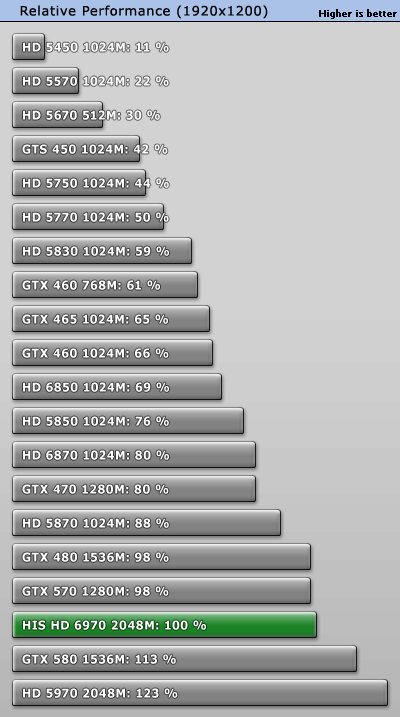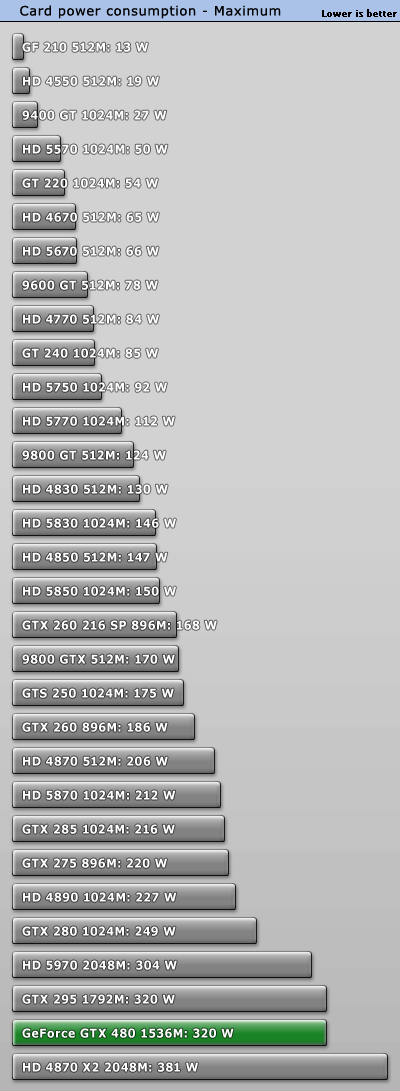- Feb 2, 2009
- 14,001
- 3,357
- 136
Did you ever wondered the performance difference those two cards have in recent DX-11 games??
Well, while reading TechPowerUps HD7950 3GB review, I did noticed that both HD5870 and GTX480 were on the benchmark slides.
So, almost two years (22 months) after the initial GTX480 release on March 2010, we have data to compare them again only in DX-11 titles.
AVP
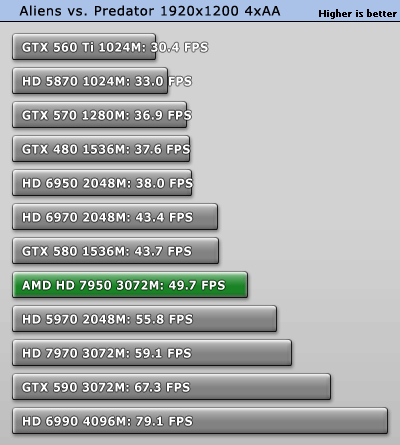
GTX480 is 14% faster than HD5870
Batman : Arkham City
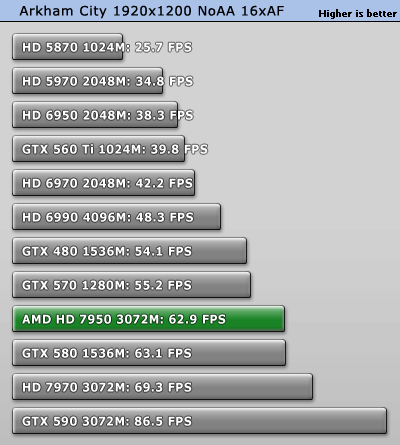
GTX480 is 110,5% faster than HD5870
BF3
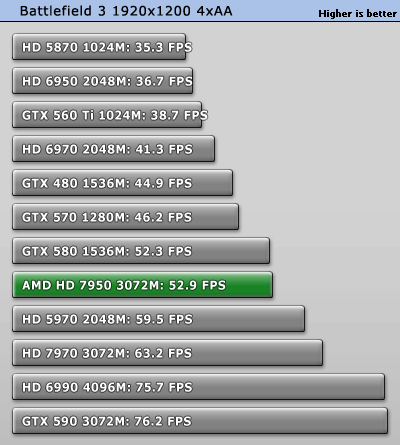
GTX480 is 27,2% faster than HD5870
Battleforge
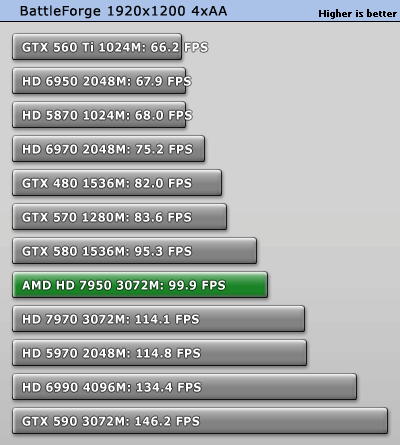
GTX480 is 20,6% faster than HD5870
Civ 5
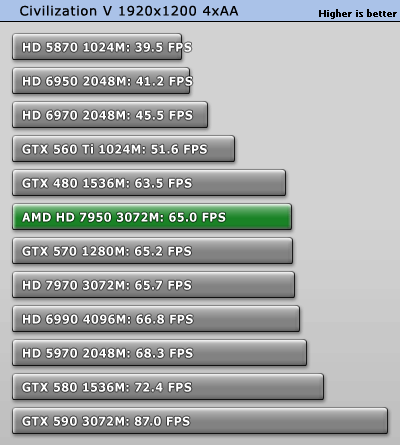
GTX480 is 60,76% faster than HD5870
Crysis 2
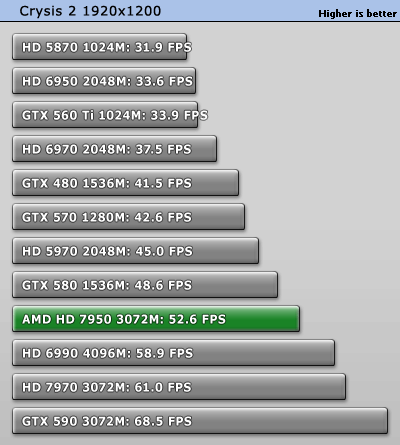
GTX480 is 30,10% faster than HD5870
DIRT 3
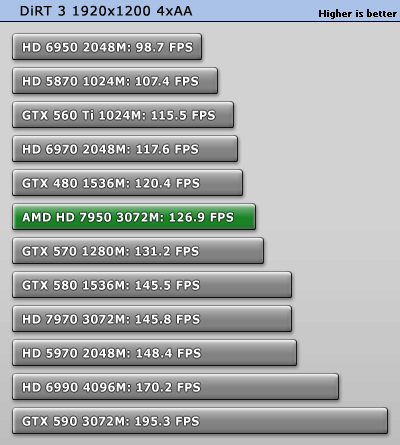
GTX480 is 12,10% faster than HD5870
Dragon Age II
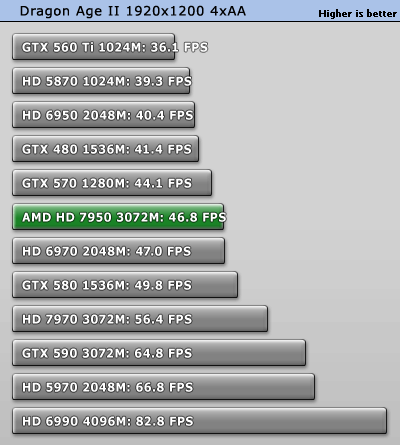
GTX480 is 05,30% faster than HD5870
Metro 2033
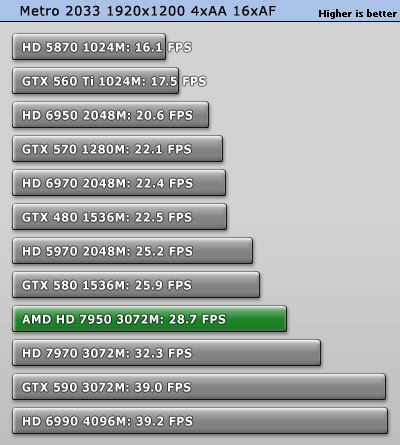
GTX480 is 40% faster than HD5870
Stalker : COP
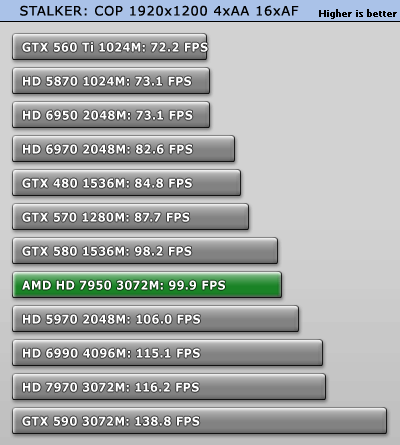
GTX480 is 16% faster than HD5870
Shogun 2
http://tpucdn.com/reviews/AMD/HD_7950/images/shogun2_1920_1200.gif
HD5870 is 16% faster than GTX480
On average, we have that GTX480 is 35,62% faster than HD5870 in DX-11 games at a resolution of 1200p.
It’s clearly that GF100 was designed for DX-11 and if both cards were being launched today, GTX480’s higher power consumption would not be a huge issue because of its large performance lead over the HD5870.
Unfortunately for NVIDIA, 2010 was not the year of DX-11 gaming. On the other hand, 2012 is the year of DX-11 games and Kepler will be playing in a more familiar playground than Fermi did in 2010.
Well, while reading TechPowerUps HD7950 3GB review, I did noticed that both HD5870 and GTX480 were on the benchmark slides.
So, almost two years (22 months) after the initial GTX480 release on March 2010, we have data to compare them again only in DX-11 titles.
AVP

GTX480 is 14% faster than HD5870
Batman : Arkham City

GTX480 is 110,5% faster than HD5870
BF3

GTX480 is 27,2% faster than HD5870
Battleforge

GTX480 is 20,6% faster than HD5870
Civ 5

GTX480 is 60,76% faster than HD5870
Crysis 2

GTX480 is 30,10% faster than HD5870
DIRT 3

GTX480 is 12,10% faster than HD5870
Dragon Age II

GTX480 is 05,30% faster than HD5870
Metro 2033

GTX480 is 40% faster than HD5870
Stalker : COP

GTX480 is 16% faster than HD5870
Shogun 2
http://tpucdn.com/reviews/AMD/HD_7950/images/shogun2_1920_1200.gif
HD5870 is 16% faster than GTX480
On average, we have that GTX480 is 35,62% faster than HD5870 in DX-11 games at a resolution of 1200p.
It’s clearly that GF100 was designed for DX-11 and if both cards were being launched today, GTX480’s higher power consumption would not be a huge issue because of its large performance lead over the HD5870.
Unfortunately for NVIDIA, 2010 was not the year of DX-11 gaming. On the other hand, 2012 is the year of DX-11 games and Kepler will be playing in a more familiar playground than Fermi did in 2010.
Last edited:




